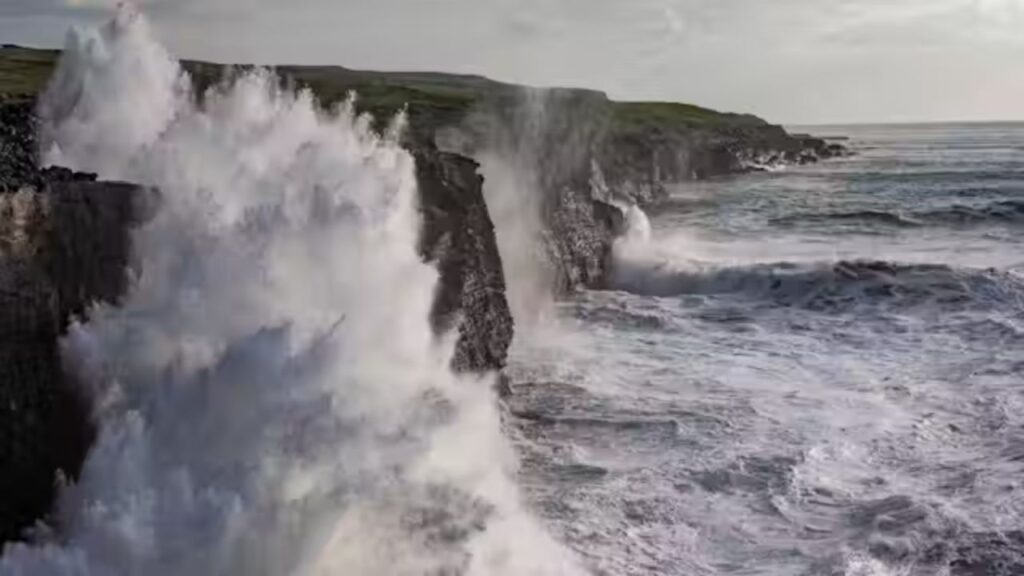Ireland is known for its temperate climate, where extreme heat has never been a major concern — the national temperature record stands at 33°C. Yet even with its relatively mild weather, the island is far from safe in the face of climate change.
In recent years, storms such as Floris, Bert, Darragh and Eowyn have battered the country with powerful winds and heavy rainfall, bringing flooding, power cuts and further erosion of vulnerable coastlines. While scientists caution it is too early to directly attribute individual storms to climate change, long-term climate modelling indicates a future with more frequent and more intense extreme weather events.
Ireland’s location on the Atlantic is both a blessing and a curse: it moderates temperatures, but also leaves the nation especially exposed to storm surges and rising seas. Already, communities have begun noticing unseasonal weather patterns, accelerated erosion, and higher water levels.
Economic and social consequences
The threats are not purely environmental. Almost 40% of Ireland’s people live close to the coast, where much of the nation’s economic infrastructure is also concentrated. Ports, airports, fisheries, aquaculture and tourism all stand at risk from floods and storm damage. As sea levels climb, homes, businesses and livelihoods in coastal areas face mounting dangers.
Despite widespread public awareness of climate change, experts argue that conversations too often become sidetracked by debates over electric vehicles or the aesthetics of wind turbines. Analysts warn that this risks slowing urgent action. Recognising human activity as the root driver of climate change, they say, is crucial in shifting towards a “circular economy” that reuses and repurposes resources rather than relying on wasteful linear models.
Building resilience
Scientists stress that Ireland urgently needs detailed research and accurate forecasts to guide future planning. Flood management, storm-resistant infrastructure and sustainable water systems must form the backbone of adaptation strategies.
Encouragingly, some communities are already demonstrating resilience. On Kerry’s Dingle Peninsula, the Maharees Conservation Association is working with local residents on erosion management, while the Dingle Hub community enterprise is promoting a low-carbon lifestyle. These grassroots efforts are being matched by national initiatives: the Irish government has committed by law to achieving climate neutrality and resilience by 2050, and local authorities are spearheading campaigns on sustainable energy and waste reduction.
A collective responsibility
Ireland cannot halt storms or stop seas from rising, but it can prepare and adapt. Experts emphasise that the response must be built on strong scientific evidence, robust policy frameworks and, most importantly, collective action.
As the climate crisis intensifies, the choice for Ireland is clear: remain vulnerable to the forces of nature, or build a society capable of withstanding them.

